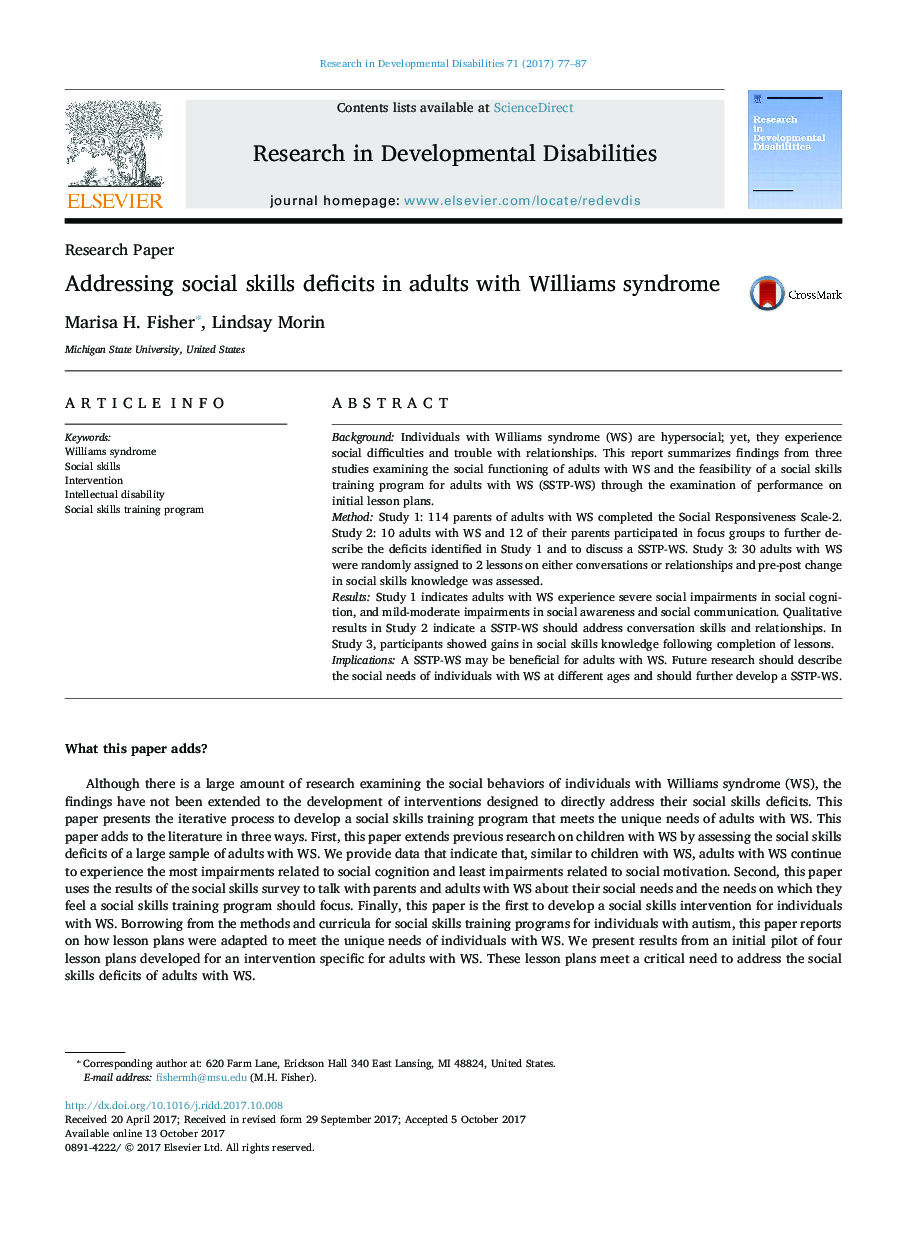| Article ID | Journal | Published Year | Pages | File Type |
|---|---|---|---|---|
| 4940970 | Research in Developmental Disabilities | 2017 | 11 Pages |
â¢Adults with WS have social skills deficits related to social cognition.â¢Adults with WS want friends with similar interests and do not want conflict.â¢Parents indicate adults with WS struggle with maintaining conversations.â¢Parents indicate adults with WS want romantic partners but struggle to find them.â¢A social skills program may increase social knowledge for adults with WS.
BackgroundIndividuals with Williams syndrome (WS) are hypersocial; yet, they experience social difficulties and trouble with relationships. This report summarizes findings from three studies examining the social functioning of adults with WS and the feasibility of a social skills training program for adults with WS (SSTP-WS) through the examination of performance on initial lesson plans.MethodStudy 1: 114 parents of adults with WS completed the Social Responsiveness Scale-2. Study 2: 10 adults with WS and 12 of their parents participated in focus groups to further describe the deficits identified in Study 1 and to discuss a SSTP-WS. Study 3: 30 adults with WS were randomly assigned to 2 lessons on either conversations or relationships and pre-post change in social skills knowledge was assessed.ResultsStudy 1 indicates adults with WS experience severe social impairments in social cognition, and mild-moderate impairments in social awareness and social communication. Qualitative results in Study 2 indicate a SSTP-WS should address conversation skills and relationships. In Study 3, participants showed gains in social skills knowledge following completion of lessons.ImplicationsA SSTP-WS may be beneficial for adults with WS. Future research should describe the social needs of individuals with WS at different ages and should further develop a SSTP-WS.
